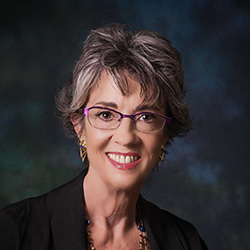After 2 years of intensive planning, the LeadingAge LTSS Center @ UMass Boston has taken its place on the national research stage.
Two years of intensive planning came to fruition this fall when the LeadingAge LTSS Center @UMass Boston stepped out from behind the curtain and took its place on the national research stage.
Our audiences seemed to like what they saw.
You may recall last May’s announcement that LeadingAge and the Gerontology Institute at the University of Massachusetts Boston were joining forces to establish a new research center focused squarely on issues in the field of long-term services and supports (LTSS).
This fall, the LTSS Center launched our new website, which features a new video explaining why we’re so excited about this revolutionary undertaking. So it seemed like a good time for my Co-Director Marc Cohen and I to take ourselves, our website and our video on the road.
During our first stop at the Grantmakers in Aging (GIA) annual conference, we described the LTSS Center’s expertise and aspirations during face-to-face conversations with leading funders in the field of aging. This was a timely opportunity, given GIA’s new goal to dramatically increase the percentage of philanthropic giving to aging by 2019.
The second stop on our inaugural tour was the LeadingAge Annual Meeting, which brought thousands of professionals in the field of aging services to New Orleans in late October. The LTSS Center found itself center-stage during one of the conference’s General Sessions, where we screened our video and talked about our work.
MAKING IT REAL
Suddenly, the LTSS Center @UMass Boston, long a dream of mine, is beginning to feel very real. And so are the many attributes that I’m sure will make it a success.
The LTSS Center is unique. We stand apart from other centers because we blend the academic rigor of one of the nation’s top research universities with the real-world expertise of LeadingAge’s applied researchers. These researchers understand the work you do, and they’re committed to making sure their research helps you succeed in that work.
The LTSS Center is rich in potential. The new center will be able to call on more researchers with a wider range of expertise, and to study more issues that are important to the people who live in your communities and use your services. The quantitative researchers in Boston will be able to conduct much more sophisticated data analysis than LeadingAge could conduct on its own. Together, we’ll build an evidence base that will make us all better equipped to handle whatever the future holds in store.
The LTSS Center is sustainable. With more researchers, and the stellar reputation of UMass Boston behind us, we’re looking forward to reaching out to more funders and involving more LeadingAge members in our work. Our expanding team, with its expansive experience and expertise, will give us a much greater capacity to garner grant funding, and influence policy and practice in our field.
The LTSS Center is growing in relevance. We plan on using our new capacity to evaluate new strategies for LTSS financing and service delivery, and conduct more policy-related research at the state level. We’re also planning to develop a standardized process for predicting how specific policy changes will impact your organizations.
CHANGE CAN BE CHALLENGING
I’m excited about the new LeadingAge LTSS Center @UMass Boston. But I also recognize that any change – even a good one like this – can be challenging.
It may take us all some time to stop referring to our Washington research team as the LeadingAge Center for Applied Research. But this transition is likely to be made much easier by the certain knowledge that some things about the way we do business will not change.
I’m still senior vice president of research at LeadingAge and, as such, I will continue to keep your challenges and your research needs at the center of my work. Likewise, our Washington-based researchers—including Alisha Sanders, Natasha Bryant and Taryn Patterson—will continue working at LeadingAge, which now houses the LTSS Center’s Washington office.
We’ll continue our research on housing plus services models, workforce initiatives, and nursing home quality. But we won’t shy away from adding new and equally important issues to our research agenda.
PROGRESS SO FAR
LTSS Center researchers in Washington, DC and Boston are already working together on several exciting projects.
We’re studying financing options for housing plus services models, and designing the evaluation of a housing plus services pilot program that LeadingAge Massachusetts will conduct in 2018.
We’re serving on the Implementation Team for a major new randomized control trial funded by the U.S. Department of Housing and Urban Development (HUD). Significantly, this $15 million HUD project, which will test a service-enriched housing model for low-income older adults, grew out of the foundational work that LeadingAge has been conducting in this area for more than a decade.
We’ve just published a paper on the association of person-centered care and resident satisfaction with nursing home quality.
We’re getting ready to release new studies that examine the extent and nature of intergenerational programming in affordable senior housing communities, and explore complex issues associated with attempts to expand the foreign-born LTSS labor pool around the world.
We’re off to a great start. We hope you’ll join us on this excellent adventure.

Robyn I. Stone, DrPH, is senior vice president of research at LeadingAge, and co-director of the LeadingAge LTSS Center @UMass Boston. Her widely published work addresses long-term care policy and quality, chronic care for people with disabilities, the aging services workforce, affordable senior housing, and family caregiving.
